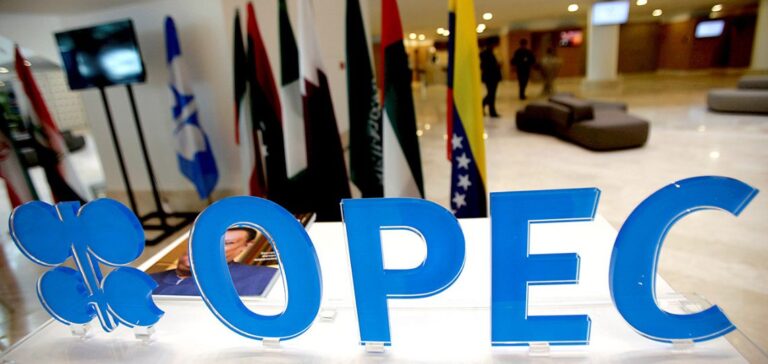OPEC+ maintains its decision to increase oil production from October 2024, in line with its plan announced in June, despite falling prices on world markets.
North Sea Brent crude for October delivery closed at $78.80 a barrel, down 1.42%, while US West Texas Intermediate (WTI) lost 3.11% to close at $73.55 a barrel.
This drop comes at a time when market players had been hoping for a reduction in supply by OPEC+ to offset weak global demand and support prices.
The OPEC+ agreement provides for a gradual increase of 180,000 barrels per day each month, from October 2024 to September 2025.
This increase is achieved by lifting the voluntary production cuts adopted by several members of the group to stabilize the market.
However, the global economic situation, particularly in China where growth prospects remain uncertain, raises doubts about the ability of demand to absorb this increased production.
Market reactions and refinery adjustments
Markets are reacting negatively to the prospect of an increase in supply without a corresponding adjustment in demand.
Andy Lipow, of Lipow Oil Associates, comments that this direction is perceived as “unfavorable” for the market, suggesting possible continued downward pressure on prices.
In response to this situation, several refineries, particularly in the USA, are reducing their production rates.
Refining margins are currently under pressure due to falling demand and the relative abundance of supply.
Gasoline prices in the USA are 12% lower than last year, indicating a weakened domestic market.
In Europe, refineries are adopting similar strategies.
The wholesale price of diesel reached its lowest level in fourteen months, prompting refiners to limit their activity to avoid a build-up of unsaleable stocks.
This trend is also fuelled by the end of the summer driving season in the northern hemisphere, a period generally marked by lower fuel consumption.
However, refinery production adjustments are not sufficient to offset the potential impact on oil prices of a continued increase in OPEC+ supply.
Impact of the Libyan Crisis on World Production
Oil production in Libya continues to be marked by instability.
The National Oil Corporation (NOC) has announced that production has fallen to 63% of pre-crisis levels, due to the closure of facilities controlled by the internationally unrecognized government in Benghazi.
This internal conflict, while affecting Libyan oil production, has not had a sufficient impact on world prices, as attention remains focused on OPEC+ production policy and uncertainties over global demand.
However, a resolution of the Libyan conflict could rapidly increase the supply available on the market, exacerbating the problems of overproduction and contributing to a further fall in prices if demand does not increase proportionately.
Markets are therefore keeping a close eye on developments in Libya, while focusing primarily on OPEC+ strategic decisions and economic data from the main oil-consuming countries.
OPEC+ Strategy and Oil Market Outlook
OPEC+ persists in its policy of increasing supply, despite economic pressures.
This strategy indicates a desire to preserve long-term market shares rather than react to short-term fluctuations.
However, such a stance may require rapid adjustments if prices continue to fall or if global demand fails to recover significantly.
External factors, such as US energy policy or geopolitical tensions in other oil-producing regions, remain elements to be monitored in order to anticipate future market movements.
Players in the oil sector remain vigilant as to the next moves by OPEC+ and potential adjustments to production policies in response to a volatile market.
The continuation of this strategy by OPEC+ could lead to a restructuring of medium-term production and consumption forecasts, requiring more agile management of production capacities and inventories.






















